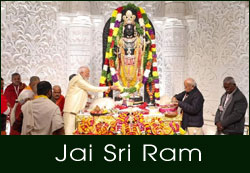- Details
- This Page Hits:7180
Lebanon | Beirut | Tripoli | Sidon
Vastu In Lebanon
 The core of Vastu results is applying Vastu shastra principles is the attainment of peace. In areas where tranquility is present, it is often the case that Vaastu or Vastu methods have been deployed. Lebanon is a region frequently characterized by instability and ongoing social discord for a variety of reasons. In situations of civil unrest, investors are generally unwilling to initiate new ventures. They prefer to establish businesses in locations that offer a clear sense of stability and peace.
The core of Vastu results is applying Vastu shastra principles is the attainment of peace. In areas where tranquility is present, it is often the case that Vaastu or Vastu methods have been deployed. Lebanon is a region frequently characterized by instability and ongoing social discord for a variety of reasons. In situations of civil unrest, investors are generally unwilling to initiate new ventures. They prefer to establish businesses in locations that offer a clear sense of stability and peace.
Neglecting Vastu principles may lead to recurring conflicts, disagreements, and unrest. If the Lebanese government adopts Vastu guidelines in important administrative buildings and the homes of prominent leaders, it could significantly enhance the chances of establishing lasting peace in the region.
The financial expenditure required to implement vastu is likely minor when compared to the ongoing costs required to maintain societal peace in Lebanon.
Captivating Vastu Links
Vastu Tips for Lebanon
Lebanon is a small yet culturally rich country located on the Eastern shore of the Mediterranean Sea, bordered by Syria country to the North direction and East direction, and Israel country to the South direction. Known for its diverse landscapes that range from snow capped mountains to beautiful coastlines, Lebanon country is also a melting pot of religions and ethnicities, which adds to its rich tapestry of history and culture.
However, Lebanon has been plagued by political instability, civil unrest, and mostly economic difficulties for many years. This has affected its attractiveness for tourism and investment, despite its immense potential. Its capital, Beirut, often referred to as the "Paris of the Middle East," embodies the nation's resilience and vibrant culture but also bears the scars of its tumultuous past.
Kindly ensure that the primary entrance door of the central administration building is not facing the Southeast direction. If it is, consider reorienting it to face either the Northeast of East, the Northeast, or the Northern Northeast directions. Making this alteration could significantly influence decision-making in a positive way, fostering a peaceful atmosphere and contributing to overall happiness.
Observe the backyard place of the West direction of the main administrative building, has more open space, please plant huge trees or plan for additional buildings like a Store room as per Vastu or permanent sheds for vehicle parking, etc, may settle down the disputes and improve the glory of administration. Or constructing apartments in the backyard or West direction may also improve the current position.
Is all Northeast facing homes are excellent, let's know the facts of NE direction. This article has extensive information with images.
If residents are planning to buy a home and it is best to know about complete remedies of West direction if planning to take this direction home.
Study about the benefits of North direction in Vastu within this post. This article has several images and detailed discription.
Know complete details about what are the benefits of East facing house through this link. This helps us to know better on East .
What are all South facing house Vastu remedies, know the details and take a nice decision before buying.
Is really, all Southeast facing homes are bad, know the facts of SE homes with images. Be cautious while buying homes.
Looking to know about Southwest facing home Vastu remedies, this article has complete details.
Wish to know Northwest facing house Vastu tips, in this link, the residents will get 58 images with explanation.
When planning to buy home then get proper guidance from only best Vastu consultant in India. India is a land of experts. Most honest people practising this subject and serving the residents.
Assessing the pros and cons of living near entertainment venues like bars can inform your home buying decision. Is buying a home next to a bar a good or bad decision? This can affect noise levels and lifestyle.
Consult the Top Vastu consultant in Dubai for personalized guidance. Applying traditional principles can help create a peaceful and vibrant living environment, enhancing prosperity and positive energy.
Choosing a home location involves considering nearby structures, which can affect living conditions and property value. Is purchasing a home next to a slaughterhouse a good or bad choice?
Building regulations and Vastu considerations can determine the impact of constructing multi-storey buildings. Is it bad if I construct 3 storey building? These guidelines ensure structural integrity and harmony.
Transform your residence with Taiwan Vastu homes techniques. Applying these ancient principles can create a harmonious and balanced living space, promoting tranquility, prosperity, and positive energy flow.
Evaluating the impact of removing natural features like ant hills can help maintain ecological balance. Can I remove Ant Hill in my plot as I am planning to start the home?
Enhance your home’s energy with Syria Country Vastu insights. Applying traditional Vastu principles can create a harmonious and balanced living environment, promoting positive energy, well-being, and prosperity, ensuring a serene atmosphere for your family.
Applying Vastu principles can create a harmonious environment, fostering peace and prosperity in your home. How can I achieve peace in my home using Vastu principles?
Optimize your residence with Colombia Country Vastu insights. Applying these ancient principles can create a peaceful and vibrant living environment, enhancing harmony and positive energy throughout your home.
Exploring Vastu's differential impact on genders can offer tailored solutions for enhancing well-being. Is Vastu affect men and women differently? These insights help customize Vastu practices for individuals.
Lord Krishna's teachings and stories play a vital role in Hindu philosophy and religious practices. Who is Lord Krishna and what is his importance in Hinduism? Learning about his life enriches spiritual understanding.
Experience the benefits of Vastu in Luxembourg for your living space. Applying ancient vastu principles can help create a serene and harmonious home that enhances happiness, prosperity, and positive energy flow, ensuring a balanced environment.
Understanding Vastu influence on fertility can guide decisions for couples planning to conceive. Does Vastu truly assist in achieving pregnancy? Proper practices can enhance fertility and well-being.
Optimize your residence using Vatican City Country Vastu techniques. Expert guidance can help create a balanced and harmonious environment, promoting well-being and positive energy flow in your home.
Achieving desired Vastu results without structural changes can be cost-effective and less disruptive. Is it possible to achieve Vastu results without breaking walls? Non-invasive methods maintain harmony without extensive renovations.
Lebanon Overview
Lebanon, officially the 'Lebanese Republic,' is located in the Middle East. The country possesses a unique cultural and ancient heritage and is one of the most distinctive countries in the world due to its ethnicity, culture, tradition, and moral values.
The capital city, Beirut, is often referred to as the "Paris of the Middle East" due to its European-style architecture and urban design. Lebanon boasts a stable economy, abundant resources, and a high level of human development.
Due to its strategic location, Lebanon was under the control of various empires throughout history, such as the Romans, Persians, Egyptians, and Ottomans. By the 7th century, Muslim influence began to spread across the Middle East, and Lebanon, along with its surrounding regions, came under Muslim control.
Although it was briefly occupied by Christian Crusaders, Lebanon remained largely under Muslim rule until the end of World War I. After the fall of the Ottoman Empire, Lebanon became a French mandate, remaining so until 1943, when it gained its independence.
Lebanon is bordered by Syria to the north and east, and Israel to the south. The country features diverse landscapes, including plains, mountain ranges, and valleys. While much of Lebanon was once covered in forests, deforestation has reduced this, leaving only small forested areas today.
Despite lacking oil resources, Lebanon has a high-income economy, supported by its strong services and industrial sectors, similar to those found in European countries.
Tourism is a vital component of Lebanon’s economy, with many attractions such as the city of Tripoli, Beirut, ancient Roman and Greek ruins, rich culture, and renowned cuisine.
Islam is the largest religion in Lebanon, comprising 54% of the population, followed by Christianity, which accounts for 40.4% (based on the 2014 census estimate). Arabic is the official language of the country.
Lebanon also hosts thousands of immigrants from neighboring countries affected by conflicts and other crises, including Palestine, Syria, and Armenia.
Few Interesting Links to Visit
Get personalized guidance from an expert on Yukon homes Vastu. Correct alignment fosters well-being and brings positive energy into your home.
Improve your living environment with Vastu principles for Saarland vastu homes. Thoughtful alignment encourages prosperity and supports well-being in your residence.
Receive tailored advice on Homes in Northern Cape Vastu to create a balanced, harmonious space. Correct alignment enhances energy flow and positivity.
Consult an expert on Benin country Vastu to create a harmonious and well-balanced living area. Proper positioning promotes positive energy and abundance.
Seek professional advice on Chad Country Vastu to improve your home’s atmosphere. Thoughtful placement ensures a calming environment, encouraging peace and relaxation.
Elevate your residence with Czech Republic Country Vastu secrets. A carefully planned layout promotes positive energy and creates a serene living space.
Get expert insights on Dominica Country Vastu to enhance your home’s atmosphere. A balanced layout nurtures harmony and ensures a peaceful living area.
Boost your home’s energy using Iran Vastu principles. Correct alignment and thoughtful design based on Vastu principles bring peace and prosperity, fostering happiness and well-being throughout your life.
History of Lebanon Country
Lebanon, located on the eastern shore of the Mediterranean Sea, has a history that spans thousands of years. Its strategic location at the crossroads of Europe, Asia, and Africa made it a hub for trade, culture, and conquest. Over the centuries, Lebanon has been shaped by a diverse range of civilizations, each leaving a significant imprint on the country's cultural, religious, and political landscape.
Ancient Lebanon: Phoenicians and Early Civilizations
The earliest known inhabitants of Lebanon date back to the prehistoric era, with evidence of settlements as early as 5000 BCE. However, it is the Phoenicians, who emerged around 3000 BCE, that Lebanon is most famously associated with in ancient history. The Phoenicians were a seafaring people who established city-states along the Mediterranean coast, such as Tyre, Sidon, and Byblos. They are credited with creating one of the first alphabets, which influenced the development of modern writing systems.
The Phoenicians were known for their advanced maritime skills and extensive trade networks, which extended as far as the Mediterranean, North Africa, and the Iberian Peninsula. They exported goods such as timber, glass, and the famous Tyrian purple dye, made from murex snails, which became a symbol of royalty. The Phoenician legacy remains an integral part of Lebanon’s identity, and their contributions to navigation and trade are still celebrated today.
Lebanon Under Empires: Assyrians, Babylonians, and Persians
Lebanon’s location made it a target for many empires. By the 9th century BCE, the Phoenician city-states fell under the control of the Assyrian Empire. Following the decline of the Assyrians, Lebanon came under the rule of the Babylonian Empire and then the Persian Empire. Throughout these periods, the coastal cities continued to thrive as major centers of trade and commerce, maintaining relative autonomy despite being under foreign rule.
Hellenistic and Roman Rule
In 332 BCE, Alexander the Great conquered the region, and Lebanon became part of the Hellenistic world. Greek culture and language influenced the region significantly, and cities like Tyre and Sidon became important centers of Hellenistic culture. After the death of Alexander, Lebanon came under the control of the Seleucid Empire.
By the 1st century BCE, Lebanon, along with the rest of the Levant, was absorbed into the Roman Empire. The Romans built impressive structures and infrastructure, including temples, roads, and aqueducts. The ruins of Baalbek (ancient Heliopolis), one of the largest and most well-preserved Roman temple complexes in the world, are a testament to the Roman presence in Lebanon. During this period, Christianity began to spread throughout the region, and Lebanon became one of the early centers of the Christian faith.
The Islamic Conquest and Ottoman Rule
In the 7th century CE, the Islamic Caliphates, beginning with the Rashidun Caliphate, spread throughout the Middle East, including Lebanon. While parts of the population converted to Islam, many Christian communities, such as the Maronites, continued to thrive in the mountains of Lebanon. The Druze faith, a monotheistic religion that emerged in the 11th century, also took root in the region, further contributing to Lebanon’s religious diversity.
Lebanon remained under the rule of various Islamic dynasties, including the Umayyads, Abbasids, and Fatimids, until the Ottoman Empire took control of the region in the early 16th century. Under Ottoman rule, Lebanon enjoyed a degree of autonomy, particularly in the mountainous areas where local leaders governed semi-independently. The Druze and Maronite communities often held significant power during this period, with the Emirate of Mount Lebanon emerging as an important political entity.
Despite periods of relative peace, tensions between different religious and ethnic groups occasionally flared, leading to conflicts, such as the Druze-Maronite conflict in the mid-19th century. These internal divisions would later play a significant role in shaping Lebanon’s modern history.
French Mandate and Independence
Following the collapse of the Ottoman Empire after World War I, Lebanon was placed under French mandate by the League of Nations in 1920. During this period, Lebanon’s borders were officially defined, and the country was granted a measure of self-governance. The French aimed to create a state that reflected Lebanon’s diverse religious makeup, particularly protecting the Christian Maronite community. Beirut emerged as a center of cultural and intellectual activity, and French influence permeated various aspects of Lebanese society, from education to legal institutions.
Lebanon declared its independence from France on November 22, 1943, following the end of the French mandate. The country’s leaders established a political system known as confessionalism, which aimed to balance power between Lebanon’s various religious groups. The president was to be a Maronite Christian, the prime minister a Sunni Muslim, and the speaker of the parliament a Shia Muslim. This system helped maintain relative peace and stability in Lebanon for several decades.
The Lebanese Civil War (1975–1990)
Lebanon's independence era was marked by rapid economic growth and prosperity, but rising political tensions and sectarian divisions led to the outbreak of the Lebanese Civil War in 1975. The war lasted for 15 years and was fueled by a complex mix of religious, political, and international factors. The conflict drew in various foreign powers, including Syria, Israel, and Palestinian factions, further complicating the situation.
The war devastated Lebanon, causing massive loss of life, widespread destruction, and the displacement of hundreds of thousands of people. In 1989, the Taif Agreement was brokered, bringing an end to the conflict and reaffirming Lebanon’s confessional political system with some adjustments. The agreement allowed for a redistribution of power, particularly among the Sunni and Shia Muslim communities, and set the stage for Lebanon’s post-war reconstruction.
Post-War Era and Modern Challenges
The post-civil war era saw Lebanon undergo significant reconstruction, particularly in Beirut, which was heavily damaged during the conflict. However, the country continued to face political instability and external pressures, including a long-standing Syrian military presence, which lasted until 2005. In that year, the assassination of former Prime Minister Rafik Hariri sparked widespread protests, leading to Syria’s withdrawal from Lebanon under international pressure in what became known as the Cedar Revolution.
Lebanon has continued to grapple with various challenges in the 21st century, including sectarian tensions, political gridlock, economic crises, and the impact of the Syrian Civil War, which has brought over a million refugees into the country. The militant group Hezbollah, which operates as both a political party and a militia, remains a powerful force in Lebanese politics, further complicating the country’s internal dynamics.
In 2020, Lebanon faced one of its most devastating events in modern history: the Beirut port explosion. The massive blast, caused by improperly stored ammonium nitrate, killed over 200 people, injured thousands, and caused widespread destruction in the capital. The explosion intensified already existing economic and political crises, prompting mass protests and calls for government reform.
Conclusion
Lebanon’s history is one of resilience and survival amid centuries of foreign domination, internal conflicts, and regional instability. Despite its small size, Lebanon has played a significant role in the cultural and political history of the Middle East. Today, Lebanon remains a country of immense cultural richness and diversity, although it continues to face numerous challenges on its path to peace and prosperity.
Key Points of Lebanon Country
- Country Lebanon
- Capital City Beirut
- Area: 10,452 km²
- Population: 6.082 million (2017)
- Currency: Lebanese pound
- Official languages: Arabic
- Demonym: Lebanese
- Legislature Parliament Government Unitary parliamentary multi-confessionalist republic
- Religions: Islam, Christianity, others
- Time Zone: UTC+2 (EET), UTC+3 (EEST)
- Drives on the right
- Dialing / Calling Code: +961
- Internet TLD .lb
- Important Cities: Beirut, Ra's Bayrut, Tripoli, Sidon, Tyre, Nabatiye et Tahta, Habbouch, Jounieh, Zahle, Baalbek, En Naqoura, Jbail, Bcharre, Batroun, Baabda
- Famous Rivers Litani River, Orontes River, Nahr al-Kalb, Abraham River, Awali, Beirut River, Damour River, Hasbani River, Kadisha River, Zahrani River
- Border Countries Israel and Syria, approximately 260 kms to Cyprus
- Spiritual Places Mohamad al Amin Mosque, Hariri-Mosque, Imam Sadiq Mosque, Al Mansouri Mosque, Al Omari Mosque, Taynal Mosque, Al Qaem Mosque, Imam Ali Mosque, Al Hasanain Mosque, Al Salam Mosque, Saint Doumit Amioun Leabnon, Church of God in Ashrafieh, National Evangelical Church, Saint Theresa Church
- Tourist Attractions: Jeita Grotto, Hayda Leabnon, Baalbek Roman Ruins, Beiteddine Palace, Martyrs Statue, Nijmeh Square, Phoenician Wall, Saint Nicholas Stairs, I Love Beirut, Zaarour Lake, Graneroverde
All Countries' Flags

Lebanon Location

Lebanon Desktop Wallpaper

Lebanon Mobile Wallpaper

Questions Related to Vastu
Vastu Testimonials Delivered By Respected Residents
Dear Suresh, I am pleased to inform you that like the way you provided consultation for my home and explained to me all the changes required inside and outside home. I really appreciate the diagrams that you prepared for my home with pictures and arrows showing the changes need to be done. Above all, you explained very well the reasons behind changes you recommended for my home with great clarity and sense of humor. No doubt in my mind, you are the best Vastu expert, I really appreciate your dedication by building and maintaining a very informative website that is helping thousands of people across the globe. Also, I sensed when I talk to you and when I was dealing with you, you follow honesty and integrity and you have a sincere desire to help others - Kotesware Rao - Dallas - USA
We are tech professionals and working in USA. After a year long search we brought the house. After buying the house I started looking for consultant who can help me evaluating the house. I came across Subhavaastu website which has lot of information. I contacted Mr.Suresh and requested him to help with our house vastu. It has been an incredible delight working with him.. He is very detailed oriented person and never compromises with his work. I am typically not interested to deliver the reviews. But after working with Mr. Suresh I decided to share my experience. Mr. Suresh has great expertise in providing vastu consultation to USA property. He is always available through email and phone l to answer questions. I am writing this review hoping it will help other people like me who lives in abroad. Please take advise before buying the house. I highly recommend Mr. Suresh as he has great experience with structure of USA properties and also he provides genuine consultation. I really appreciate Mr. Suresh's help in evaluating our house - Padma - Boston - USA
"I contacted Sureshji to consult on our current home. He was spot on in identifying vastu dosha in regards to the problems we were having. He suggested remedies but we are still looking for a new house. Since then I have been in touch with him for finding a right home for us. He is very sincere and truly wishes better lives for everyone. He doesn’t compromise with quality and is always responsive to queries. He recommends solutions as per location as Vastu rules differ for each country. He is greatly contributing to the society with his knowledge of Vastu and dedication towards his work. Keep up the good work Sureshji and wish you success and happiness!" - Megha - Virginia - USA
I have consulted Suresh Garu during December 2014 during the process of buying a house in Texas, USA. I have occupied the house for one year now, and feel like dropping a review regarding my experience during the entire process. I am very much satisfied with the kind of service I received from him. He is very knowledgeable and I was often stunned by his detailed analysis during the course of my interaction with him. He was very much accessible over phone (perhaps more than 10 times for one house plan!) and the price is very much reasonable especially compared with the cost of the house. I noticed his burning desire to help me in making informed decisions on certain things. I have seen some people pretending to know this subject and misguiding those who come for help by saying only what we want to hear. SubhaVaastu is definitely not that one. Finally, I am strong believer of leaving certain things to experts in those subjects. I have been in US for more than 13 years and have seen people doing their own corrections (by reading website articles) trying to save few dollars. Please don’t do that. You would end up in causing more damage. I highly recommend you to engage SubhaVaastu in your next project - Satish - Dallas - TX - USA
Announcement
Delayed Marriages
Exploring Vastu Factors Behind Delayed Marriages.. An investigative study focusing on "The Impact of Vastu on Delayed Marriages" and exploring "Vastu Factors Contributing to Infertility Issues".
Vastu Questions
A comprehensive range of Vastu queries have been addressed here.100 Vastu Questions & Answers
Free Vastu Services
Who are eligible for Free Vastu Services, check this page.
Inspirational Quotations
"As long as you think only about yourself, God will not think about you. But the moment you start thinking about the welfare of society, God will start thinking about you." - SubhaVaastu
“Great Personalities speak about thoughts. 'Average Person' talk about occassions. 'Narrow Minded' gossip about others.” ― Eleanor Roosevelt . . . Let you question yourself, "Who You Are, either 'Great Personality', 'Average Person' or 'Narrow Minded' ?
Joke Of the Day
I participated in a competition where the challenge was to stay silent for five hours to win a prize of ₹1 lakh.
After 4 hours and 59 minutes, the organizers asked:
>>> "Do you want cash or a cheque?"
>>> I replied, "Give me cash only."
>>> That's it... They handed me a chocolate and said, "You lost!"
Vastu Tip of the Day
Follow us on Social Media
Follow us on WhatsApp
We introduced WhatsApp Channel from 16th November 2024. Here is the link - SubhaVastu Whatsapp Channel









